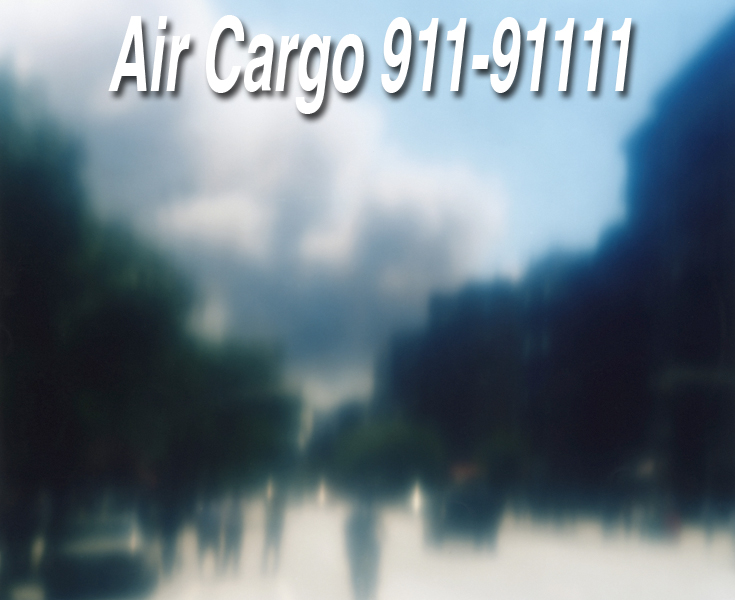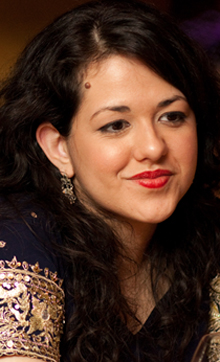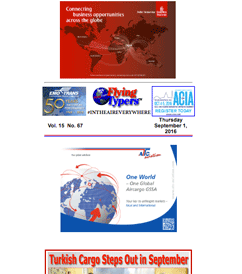
 Flossie
Arend Flossie
Arend
Managing Editor
Air Cargo News FlyingTypers
I remember waking up on the
morning of 9/11 and wishing I could go back to sleep.
I was a junior in college and had chosen to have early
morning classes on Tuesday—a big mistake for me,
as I naturally kept night owl hours. My dorm apartment
was relatively quiet when I got out of bed, but I could
hear the television on in the living room; this was
a normal occurrence as my actor student roommates were
always up early and put the television on while they
had breakfast and got ready for the day.
I remember walking in
to the living room and feeling as if I had walked into
a museum. My roommates, coffees in hand, were sitting
and standing as still as statues, their eyes focused
on the television set. The first plane was hitting Tower
1 on a loop, like some nightmarish broken record. It
was probably about 8:55 in the morning.
I don't remember what
we said to each other, but they must have acknowledged
my presence with something like, "A plane hit the
World Trade Center." I was frozen. I think I had
the opposite reaction from everyone else, at least from
what I've read in editing together FlyingTyper's 9/11
responses: my brain immediately began buzzing with negative
thoughts. A plane of that size would never fly so low,
so close to the city. Some instinctual part of me knew
it was terrible, and not an accident.
I stood with my roommates,
watching as the second plane hit Tower 2. I don't know
what came over me then, but something in me clicked
on, like an automatic coffee drip. I picked up my things
and left my apartment to go to class. I don't know why
I thought class would still be going on, but I guess
when something like that happens—the kind of thing
that attempts to tear through the fabric of a routine
life—the brain and the body struggle to operate
normally. Like when someone dies and we comb their hair
just so, and fix their collar, and wipe something from
their cheek.
My morning class was on
the other side of campus, across a large field. I had
to pass through several dorm apartments to get there.
It was an absolutely gorgeous day. A robin egg sky,
a warm, yolky sun and very few clouds. The only sound
I could hear was the soft wind through the trees and
the gossiping birds. No one was outside. I was the only
person still on schedule, walking to a class that was
surely canceled but walking anyway, I'm not sure why.
I distinctly remember taking a path between dorm apartment
buildings and seeing the blinds closed on all the windows,
as if no one was willing to let this day in—as
if they could somehow keep it out. Every window was
flickering ghostly blue behind those blinds, the lit
staccato coding of television sets humming in dark rooms.
That image will stay with me always - the long, green
path between buildings and those eerie, flashing blue
windows. My campus as a ghost town.
I reached the door of
the building that my classroom was in and it was locked,
of course. There was no sign—no time for signs,
I guess. Looking back on it now, I suppose my determination
to get to my Tuesday morning class was somewhat ironic.
The class was Self Defense. Something unconscious was
clearly at work there.
I got back to my dorm
in time to see the towers fall. I can't describe the
feeling of watching something like that happen in real
time. We take for granted the landscape of life and
the world. When the topography changes, it is a grim
reminder of impermanence—our own, and our world's.
Perhaps it was my youth, but I wasn't prepared to see
a piece of New York City crumble to ashes; I naively
thought of those buildings like bone in the body of
the city, and a broken bone—a tooth falling out—was
unfathomable.
The days that followed
were jumbled and confusing. I didn't feel in them so
much as outside of them, peering in. My siblings were
scattered all over the city, and I was only interested
that they were ok. My parents were meant to be in the
Towers delivering the Air Cargo News that day, and I
am forever grateful that the stress of a family business
left them too tired to go in.
Everything changed that
day. We became a nation that didn't just look on horror,
but experienced it as well. For
decades we had seen war come to others and had seen
how it ravaged and destroyed, but it had never come
to us like with the World Trade Center. Even Pearl Harbor
had occurred within some kind of pretext, however awful
it was. I feel as if this was like a shot to Achilles'
heel—we were not some ambling God-nation that
could remain impenetrable and immortal. There were arrows
that could take us down. I only wish we had the foresight
to see it earlier, to know that we were, in fact, capable
of crumbling, and that just because we had wealth in
our coffers did not mean we could be kept safely outside
the realm of the horrible. Money won't protect or save
you—it might just put a target on your back.
The idealist in me wishes
we could have gone in another direction somehow—one
that didn't lead to fear, suspicion, hate, racism, greed,
war. It's been ten years and we only just recently took
out Osama bin Laden. What
do we have to show for those ten years? How did we grow—not
as a nation, but as people who share a planet? I know
I'm probably 1,000 times safer getting on and off a
plane now, but is life in general any safer? It seems
we are treating symptoms and not illnesses. How can
we heal ourselves at the source?
Some would say the hate
and anger at the root of all this is like the common
cold. It can't be cured. They've given up hope.
Why give away the one
thing that can't be taken? |





